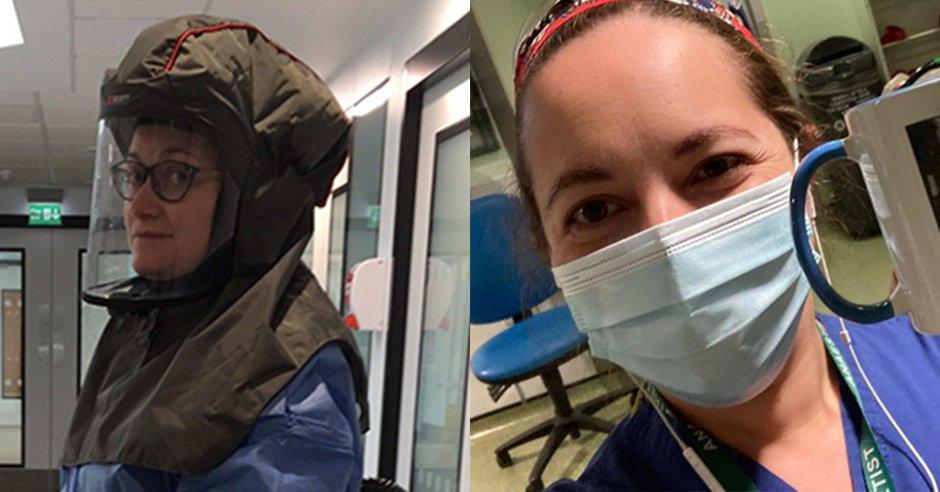10 NHS Staff on How UK Aid Cuts Make Their Jobs Harder

When you think about the devastating consequences of cuts to UK aid, you might not expect that Britain’s National Health Service (NHS) would be one of the institutions to suffer.
Why would slashing billions from the budget used to tackle extreme poverty abroad have consequences for the work of our doctors, nurses, and midwives at home?
However, the cruel reality is that the cuts have a far-reaching impact — and some NHS staff have come out to argue that, at a time when COVID-19 cases are rapidly rising in the UK once more, these cuts are making their crucial work more difficult.
They are doctors, nurses, midwives, pharmacists, surgeons, and anaesthetists from hospitals based all over the country, affiliated with the Tropical Health and Education Trust (THET), an organisation that connects NHS staff to health workers in Africa and Asia for training.
There are more than a billion people who will never encounter a qualified health worker across their whole lives. That’s why, in the past nine years, THET has partnered with 130 NHS Trusts, Royal Colleges, and academic institutions to reach over 100,000 health workers across 31 countries.
Our amazing doctors and nurses within the NHS are right at the centre of all this astonishing work — 2,000 NHS staff have volunteered 95,349 days of their time in the past four years alone to help train health workers in some of the world's poorest communities, according to THET.
It works through grants of varying sizes: THET offers funding for specific NHS institutions, like trusts or universities, to partner with health institutions in low- and middle-income countries, like hospitals and training colleges. They share knowledge with one another, and as part of the grant, UK staff will often visit the partner organisation abroad to learn new skills, and offer practical expertise — with overseas staff visiting the UK to share their knowledge too.
Well-trained health workers abroad mean stronger health systems around the world, which in turn means a more resilient NHS. Take the pandemic, for example: if cases fall in every country, it becomes far less likely that a vaccine-resistant variant of the virus will emerge.
THET is just one of many organisations that has seen their work decimated by UK aid cuts. Although five years of funding was approved for their project — called the UK Partnerships for Health Systems — in 2019, it was cancelled by the Foreign, Commonwealth, and Development Office (FCDO), in April 2021.
In total, £48 million in aid funding was lost, £28.5 million of which would have allowed NHS staff to train 78,000 healthcare professionals in low and lower-middle income countries, projected to help more than 430,000 patients.
The NHS staff that spoke to Global Citizen insisted it was a two-way street: the training programmes taught them how to work with patients from different cultures back home; opened their eyes to new perspectives; encouraged knowledge-sharing by opening them up to new ways of working; and helped them develop fresh skills, like maximising the effectiveness of resources.
Indeed, Sarah Davidson, who worked in a Winchester intensive care unit during the pandemic while three months pregnant, told Global Citizen that she often learns more from doctors abroad than they learn from her. “The NHS needs the most efficient use of resources to solve problems,” Davidson says. “And that’s the skill you get taught working overseas.”
Without these incredible humans within the NHS, the pandemic would have overwhelmed the UK. But without aid funding, it’s more likely that health systems abroad will succumb to that fate — making the NHS weaker as a result. Everything is connected.
Here they talk to Global Citizen about the work they’ve been doing through THET partnering with health care workers in vulnerable countries, and describe the devastating effects of the aid cuts on their everyday lives.

